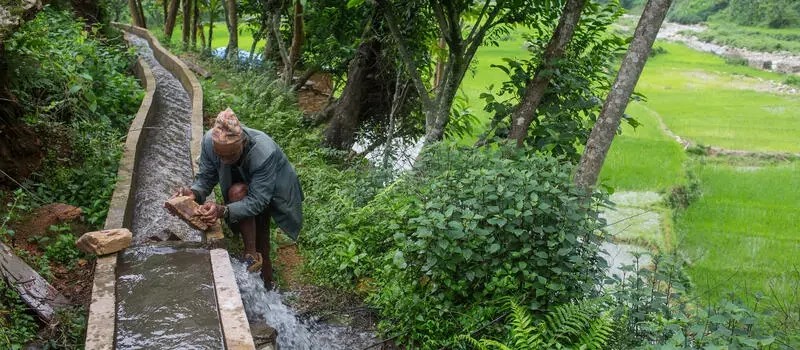Boosting Nepal’s Domestic Production to Combat the Global Food Security Crisis
Agriculture is always impacted by war. However, Russia’s war in Ukraine – between two big agricultural production players in the setting of globalized agricultural markets – incurs never-before-considered implications for global agriculture and food security. Russia and Ukraine are significant exporters of maize, wheat, fertilizers, edible oils and crude oil: trade that is compromised by the war, with the greatest impact being on the poor and low-income countries that rely most on food imports. Partly because of the Ukraine–Russia conflict and partly due to the decline in agricultural production caused by the climate emergency, food prices have increased between 9.5 and 10.5 percent over the past ten years.

According to a World Bank report, Nepal is one such low-income country, where one in every four families is impoverished. Although wheat, maize and rice are staples, vegetables are also important for nutrition and income, and Nepal imports fuel and fertilizer for their domestic production. Uncertainty in global supply chains, combined with the Nepali rupee’s significant depreciation against the U.S. dollar, has resulted in a 500 percent increase in the cost of diesel since 2012.
Land irrigation is crucial to crop growth and to the capacity of farmers to withstand the effects of the climate emergency and economic shock. Cereal Systems Initiative for South Asia (CSISA) advises farmers (particularly women), governments and donors on the targeted support available to enable them to access existing low-cost and fuel-efficient engineering solutions, which can contribute to the immediate goals of increasing agricultural productivity, intensifying groundwater irrigation and improving rural livelihoods. It informs small producers about potential ways of gaining access to irrigation and how to develop water entrepreneurship, and empowers farmers, especially women, to improve service provisions and to gain access to services and irrigation pumps, including through access to finance.
Full text published in Agrilinks here.
Tags: Nepal, Ukraine response
